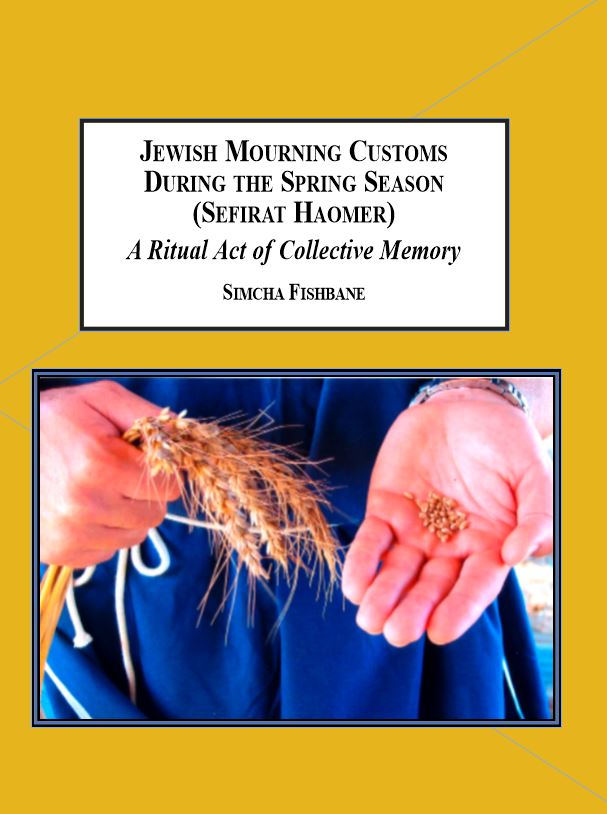This is our backup site. Click here to visit our main site at MellenPress.com
Jewish Mourning Customs During the Spring Season (Sefirat Haomer): A Ritual Act of Collective Memory

| Author: | Fishbane, Simcha | |
| Year: | 2017 | |
| Pages: | 52 | |
| ISBN: | 1-4955-0617-7 978-1-4955-0617-8 | |
| Price: | $59.95 | |
Dr. Fishbane’s monograph seeks to employ social scientific theory to understand the significance and evolution of Jewish mourning customs practiced between Passover (Pesach) and the Feast of Weeks (Shavuot) holidays.
Reviews
"Most researchers, scholars and rabbis are in agreement that these twenty-four thousand students of Rabbi Akiva were in reality soldiers of Bar Kochva, who participated in the revolt against the Romans; this was the last attempt to restore Jerusalem Temple society and Jewish sovereignty. … Furthermore Rabbi Akiva was known to be a strong supporter of Bar Kochva and even believed him to be the Messiah. It is no surprise then, that he would instruct his students to join forces in revolt against the Romans. … The obvious question then, is why the editors of the Talmud pre-ferred to present the Rabbi Akiva tragedy and ignore the Bar Kochva story?"
Table of Contents
Introduction
The Rabbi Akiva Story
The Theoretical Framework of Collective Memory
The Talmud as History
The Rabbis of Late Antiquity
Babylonian Talmud Yebamot 62a
The Geonim
Roman and Foreign Influences
Refraining from Work
The Rishonim
New Time Frame
Supplementary Practices
Additional Rationalizations
Discussion
The Sephardic Community
Achronim
Concluding Remarks
Works Cited
The Rabbi Akiva Story
The Theoretical Framework of Collective Memory
The Talmud as History
The Rabbis of Late Antiquity
Babylonian Talmud Yebamot 62a
The Geonim
Roman and Foreign Influences
Refraining from Work
The Rishonim
New Time Frame
Supplementary Practices
Additional Rationalizations
Discussion
The Sephardic Community
Achronim
Concluding Remarks
Works Cited
